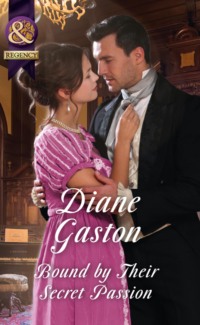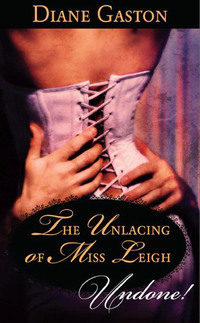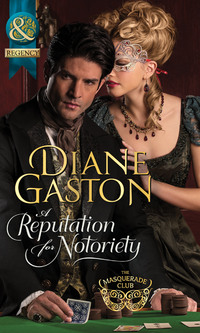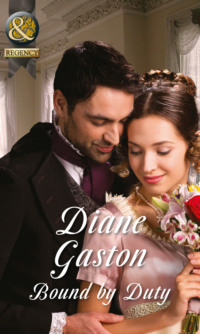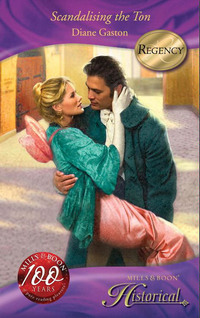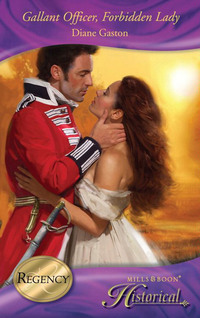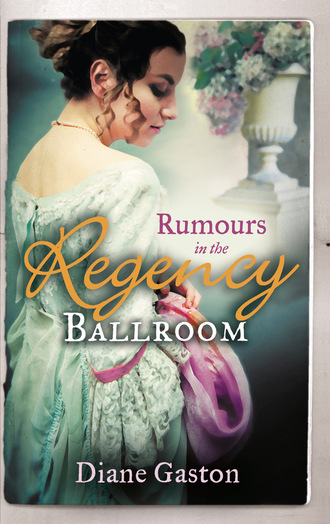
Полная версия
Rumours in the Regency Ballroom
“About the money coming to you?” Mary’s eyes grew wide.
“No, thank goodness.” She bit into her toast.
Mary clucked her tongue. “Mr Dixon told you the doors and the walls were too thick. Those newspaper men could not hear us cheering, I am certain of it, m’lady.”
Lydia swallowed. “So far, it appears you are right.”
Mary pursed her lips. “What did they write about you?”
Lydia cast her eyes down. “My name is linked to a man, who will buy me jewels.”
“They said such things?” Mary cried.
“One paper, that is all.”
The maid’s brows knitted. “But how can they make up such a story? It isn’t right, m’lady.”
Lydia gave her a wan smile. “I agree.” She sighed. “I sometimes think they will never leave me alone.”
Mary’s expression turned sympathetic. She lifted the dress. “I brought the pink.”
Lydia nodded. “That will do very nicely.”
Any dress would do, because Lydia did not intend to go out, nor to have callers. She could wear anything at all, anything but black. Lydia refused to wear black. She refused to mourn for Wexin, refused to even think his given name. He’d been a stranger, really, and one did not formally mourn strangers.
She took another bite of her toast. The jubilation of the previous day was dampened by reading her name in the paper once more.
And the connection to Adrian.
Lydia straightened her spine and took a fortifying sip of chocolate. She would forget all about that episode with Adrian. Soon the newspapers would find someone else with whom to attach her name.
She planned to spend the day perusing the household accounts. Now that she was in control of her money, she intended to spend wisely and never have to worry over money again. First she must learn the cost of ordinary things, such as lamp oil and beeswax and the food for their table. She must learn how to make a budget that included the servants’ salaries, taxes on her menservants and the house, and whatever amounts she would be expected to pay throughout a year. It would be like assembling a puzzle, and she enjoyed assembling puzzles.
“My lady?” Mary laid the dress on the bed. “I thought I would go to the shops this morning to purchase the items you requested.”
Lydia had asked for pins and also silk thread. She planned to embroider new seat covers for the diningroom chairs. She needed something to keep her fingers busy and to fill her time. To keep her from becoming lonely.
Mary turned to her. “Won’t you come? You’ve not been out in ever so long.”
Only a scant few days ago, Lydia thought, but Mary knew that outing had not been for pleasure.
Although Lydia had gained pleasure from it. She glanced at her bed and thought of Adrian.
Lord C in The New Observer.
“Not today, Mary.” She shook her head, more to remove his image than to refuse Mary’s invitation. “I fear I would be followed by the newspaper men.”
Mary walked over to the window and peeked through a gap in the curtains. “They are still out there.”
Lydia had already seen them loitering near her door.
“I suppose you cannot come with me, then,” Mary said.
Lydia smiled at her. “You must purchase something for yourself when you are out. A length of fabric for a new dress, perhaps. Or a pretty hat. I will give you some extra coins.”
Mary curtsied. “Thank you, my lady, but I could not—”
“I insist.” Lydia stood. “Would you help me dress?”
Samuel stood shivering on the corner of the street where he had a clear view of Lady Wexin’s side gate. He had already seen the butler hurry out. Samuel almost followed him, but made a snap decision to remain where he was. He really hoped the maid might come out next.
All the reporters knew that something had made the household jubilant two days previously, but none of them had discovered what it was. It had been noted that Mr Newton, Wexin’s solicitor, had called and shortly after whoops of joy were heard. Perhaps the widow had come into more money, but coming into money when one was wealthy was not too interesting.
He needed something more.
The hinges of the gate squeaked, and, as Samuel had hoped, the trim figure of the maid appeared.
In Samuel’s experience, maids knew everything that went on in a household and they could often be encouraged to talk about what they knew.
The maid headed towards Berkeley Square. If Samuel hurried, he could catch up with her, but he needed to detour so that neither she nor the other reporters saw him.
He walked to Charles Street and practically ran to Berkeley Square where he caught sight of her just as he’d hoped to do. Keeping a good distance between them, he followed her as she walked to the shops.
It was almost peaceful following her on her errands. Samuel watched her select threads and pins and pieces of lace. She did not hurry at her tasks, but instead examined all the wares at a leisurely pace, as if this excursion was merely for her own pleasure.
Instead of making him impatient, it seemed a treat to watch her. She had a trim little figure, a graceful way of walking, and a sweet way of smiling at the assistants in the shops. Her heart-shaped face was as pale as the finest lady’s, fringed by auburn curls that escaped from her bonnet. Her lips were so pink they might have been tinted, but what intrigued him the most were her huge blue eyes.
She filled a large basket with her purchases, adding bouquets of flowers from the flower vendors until she looked more like a girl who had come from a stroll in a lush garden than a servant about her errands.
When she headed back towards Berkeley Square, Samuel realised he’d not found an opportunity to speak to her, although it somehow had not seemed like time wasted.
When she entered Gunter’s Tea Shop, a confectionary in Berkeley Square, he saw his chance. Samuel hurried into the shop behind her.
“A lemon ice, please,” she said to the shop assistant. “And six of those.” She pointed to marzipan displayed under glass, perfect miniature pears and peaches and apples, confections made from almonds, sugar and egg whites.
He stood behind her, his heart beating a little faster. He could easily see over her head. She was no taller than the level of his chin. She turned and gave him the briefest glance with those big blue eyes. He nodded to her, and she turned away again.
The shop assistant produced the lemon ice and packed the marzipan into a box, tying it with string. The maid handed the shop assistant her coins. When she walked past Samuel he had a whiff of lemon from the lemon ice, but also a hint of lavender.
He stepped up to the counter. “A lemon ice, as well.” He wanted to ask the shop assistant to be quick about it, but held his tongue.
The maid took her time leaving the shop, admiring the delectable fare displayed under glass on both sides of the aisle. He’d nearly had a chance to speak to her and still might if the shop assistant hurried with his lemon ice.
His quarry walked out of the door.
“Your ice, sir.” The shop assistant handed over the dish.
Samuel threw down his coin and hurried out after the maid. As he’d hoped, she was seated on a bench near a tree, her basket beside her. He sauntered over.
He nodded to her again. “I see you, like me, could not resist a lemon ice even on this chilly day.”
She glanced up, a spoonful in her hand, “That is so,” she said softly. She shivered prettily as she swallowed it.
Samuel dipped his spoon in the treat, taking a generous portion and swallowing it at once. Pain seized his entire chest.
“Oh, that hurt,” he gasped. “Did you ever do that? Swallow something cold and have it feel as if someone had punched you in the chest?”
She glanced at him, looking uncertain as to whether to speak to him. “You should take it a little at a time,” she finally said.
After dipping his spoon into the ice again, he lifted it to show her the tiny portion before letting it slide slowly down his throat. He grinned at her. “That was a great deal more pleasant.”
She glanced at him again and turned her attention back to her own lemon ice.
He took another spoonful. “I am Mr Samuel…Charles,” he said, taking the name of the street that had been his detour in following her. “I know it is forward of me to speak to you, but I am new to London. I do think it is so much nicer to share the eating of such a treat as an ice, than to eat it alone, do you not agree?”
She nodded ever so slightly and shifted in her seat, knocking the box of marzipan out of her basket.
Samuel picked it up and put it back in.
“Thank you, sir,” she said, briefly meeting his gaze.
“Will you be eating all that marzipan alone?” he asked.
She smiled. “Oh, no, sir. It is my treat for my lady and the others.”
“For your lady?”
She nodded again, but with less reserve. “I am a lady’s maid, sir.”
“Do you always bring your lady such delicacies?” He kept his tone soft and friendly. It was not difficult to do with such a sweet and pretty girl.
She smiled at him. “Oh, no, but it is my treat. We are celebrating today.”
His brows rose and his heart accelerated. “Celebrating? And what do you have to celebrate? Something wonderful?”
Her smile widened and her eyes sparkled and, for a moment, Samuel forgot everything but how charming she looked. “We are celebrating good fortune!”
“Good fortune?” By his tone he encouraged her to go on.
She merely nodded happily and scraped the last of her lemon ice from her dish. She picked up the basket and stood.
He quickly finished his own ice. “Allow me to return your dish for you.” He reached for it and his glove scraped hers.
“Thank you, sir.” Her eyes caught his again.
He continued to peer into their depths. “Would…would you like to share a lemon ice again? I could meet you right here whenever you say.”
Her expression turned serious, but she did not look away. Finally she answered him. “Saturday. Around one o’clock? I think my lady might not mind.”
His smile was genuine. “I will be delighted. It…it pleases me to have a friend with whom to share my lemon ice.”
Her lashes fluttered and her face flushed pink. Before he could say another word, she curtsied and hurried off.
Samuel watched her rush away before he returned the dishes to the tea shop. He had not wormed very much out of her, but more would come.
Saturday at one o’clock.
He was surprised at how much he looked forward to sharing another lemon ice with her.
Adrian opened his eyes to bright daylight illuminating his bedchamber. He twisted around in the bed linens to look at the clock on the mantel.
It was about to chime two o’clock.
He groaned and swung his legs over the side of the bed. His valet appeared. “Do you rise now, m’lord?”
Adrian rubbed his face, wondering how his man always seemed to know the instant he awoke. “I suppose.”
Dawn had been showing its first glimmer of light when Adrian walked home from the gambling den where he’d spent the night hours at a table of whist. His profits had not been spectacular, but, then, he had not been as keen at keeping track of cards. Too many other thoughts intruded.
Every win, every loss, was measured against the sum he had given to Lydia and, thus, he’d kept her constantly in his thoughts, distracting him, leaving him feeling unsettled.
Hammond stood next to the bed, holding his banyan so that Adrian had no choice but to stand and be assisted into the garment. He padded over to the basin, not surprised that the water in the pitcher was warm. How Hammond accomplished having warm water no matter what the hour of Adrian’s rising was another unfathomable mystery.
Adrian splashed water on his face and brushed his teeth, then sat so that Hammond could shave him. Same as he had done the day before and the day before. Boredom was a dreadful thing. What did one do when that which once relieved boredom now merely added to it? Hammond left to prepare Adrian’s breakfast while Adrian finished washing up.
He walked into his drawing room where Hammond had prepared a table for him with slices of cold ham, cheese, bread and jam. There was also a fresh pot of hot coffee and copies of the morning newspapers.
Adrian sipped his coffee while looking through the papers. He came to an article in The New Observer:
The certain gentleman, whom we have now identified as Lord C—, and with whom Lady W—was so recently linked, has lately visited several jewellery shops…
Adrian sat up. Good God.
This was Reed’s newspaper. Reed had identified him.
Adrian turned hot with fury.
The damned man had probably followed him, as well.
If Adrian caught Reed following him again, there would be hell to pay and he’d see Reed paid it.
How much did the man know? Adrian perused the column again and blew out a relieved breath. Reed thought he’d been purchasing jewels.
It was nearly half past three before Adrian ventured out. For wont of any other place to go, he headed towards White’s. The air felt damp as if rain was in the offing, and other pedestrians on the street seemed to keep their heads down. To Adrian, the cold was bracing and it felt good to walk at a fast clip.
He was almost invigorated by the time he walked into White’s, but, as soon as he stepped into the coffee room, he knew something was wrong.
The room was quiet and the gentlemen present were whispering among themselves or keeping their eyes downcast. Adrian saw Tanner sitting alone at one of the tables. He crossed the room to him.
“Who the devil died?” he asked.
Tanner looked up and gave him an ironic smile. “Actually, the Queen.”
Adrian dropped into a chair. “My God. I was merely joking.”
The Queen had been ailing for some time, and news of her condition was printed often in the newspapers. She’d been convalescing at Kew Palace for some time. Even lately, she’d been reported taking the sun in the garden.
“When did you hear?” Adrian asked.
“Not more than an hour ago.” Tanner took a sip of coffee. “She died at one o’clock, it was said.”
Adrian signalled the attendant. “Tea, please.”
Tanner lifted a newspaper that had been lying on the table in front of him. “Did you see this?”
It was a copy of The New Observer.
“I read it.”
Tanner twirled his finger. “Before news of the Queen arrived, they were all speculating about who was this Lord C The New Observer writes of.”
Adrian kept his eyes steady. “The New Observer writes of a Lord C?”
Tanner tapped the paper. “It does. Lord C—, it said…Lord C—, with whom Lady W—was so recently linked.” Tanner grinned. “You don’t suppose he means Lord Cavanley, now do you?”
Adrian made himself roll his eyes. “Of course, you would think of me. Not Lord Crawford or Carlisle or Crayden.”
Tanner feigned being offended. “I would expect you would tell me before it appeared in the newspaper. I mean, we are friends and there is, of course, my recent connection to Wexin.”
This was the moment that Adrian ought to tell Tanner the whole—only he could not quite bring himself to open his mouth.
“I was about to head off to Gentleman Jack’s,” Tanner said. “Come with me.”
The moment passed. “Very well.”
A good bout of fisticuffs would not hurt.
When they were outside, Adrian asked Tanner, “I know you have been concerned about Lady Wexin. What do you think this newspaper report means?”
Tanner shook his head in dismay. “I cannot know. After our return to London, Marlena and I sent Lady Wexin a note asking if we could call upon her, but she refused.”
Adrian walked several steps in silence. Here was another moment for him to tell Tanner of his encounter with Lydia.
“How is Lady Tannerton?” he said instead. “I do hope she is well.”
Tanner smiled, but it seemed to Adrian that the smile was meant for Tanner’s wife. “She is splendid, Pom. She is splendid.” He stared off into the distance for a moment before glancing back at Adrian. “Lady Heronvale has taken her under her wing. They are making calls to other ladies today.”
“Good of Lady Heronvale.”
Tanner turned pensive. “I suppose there will be much involved with the Queen’s funeral. I wonder if Marlena will be up to all the pomp so soon.”
After what Tanner’s wife had been through already, Adrian suspected a royal funeral would seem like a simple ride through Hyde Park. “She’ll do splendidly.”
Tanner laughed. “Pom, I am so unused to this. I feel amazingly at loose ends. I have become so accustomed to being at her side.”
Adrian, at least, knew precisely how it felt to be at loose ends.
He clapped Tanner on the shoulder. “Then it is good that I am with you. Let us beat each other to a bloody pulp at Gentleman Jack’s, and we will both be certain to feel better.”
Chapter Six
The Ceremonial for the Internment of her late Most Excellent Majesty Queen Charlotte of blessed memory, will take place in the Royal Chapel of St George at Windsor, on this day, Wednesday of the second day of December, 1818.—The New Observer, December 2, 1818
Lydia stood at her window watching the carriages roll by. It looked as if the funeral procession for the Queen had begun in Mayfair, rather than Windsor. Most of the peerage, it seemed, would be in the procession for the Queen.
She felt apart from it all, separated from the life into which she had been born. It was true that wives and daughters of peers would not be greatly in attendance at the funeral, but they would have been intimately involved in conversations about its planning and would hear every detail of the ceremonial at the end of the day. She had no one with whom to converse about it.
One fine carriage after another rumbled by, the gentlemen wearing tall black beaver hats or plumed regimentals just visible through the carriage windows.
Would Adrian be among them?
Lydia groaned. She ought not to think of him, but with her empty days it seemed he came much too often into her mind. Even when she ventured to Piccadilly Street to browse in Hatchard’s or to purchase jams at Fortnum and Mason, she found herself searching for him among the passers-by.
At least now she was able to walk to the shops unmolested. The reporters had vanished from her doorway when it became known that the ailing Queen had reached the end of her suffering. Lydia could not be glad the beloved Queen had died, but she was ecstatic that the reporters’ attention had turned towards the King, the Prince Regent and the Royal Dukes and Princesses. The newspapers were filled with every step the royals took. Speculation was rampant about the Queen’s will and the fact that she had only recently composed the document. Who would she remember in her will? And who would she leave out?
The Queen had always seemed like a formidable figure to Lydia. She had shaken in terror when she’d been presented to the Queen during the Season of her come-out. Lydia imagined all sorts of mishaps, like tripping on her skirt or losing one of the huge feathers she wore in her hair. When it had been her turn to be announced to the Queen, Lydia had been convinced she would faint, but somehow she’d made her approach and performed a graceful, if overly practised, curtsy.
The Queen had actually spoken to her. “Why, you are quite a beauty,” Her Majesty had said. “Quite a beauty.”
Lydia smiled at the memory of herself, so young and giddy and full of hope. It had been a time when she’d dreamed of love and marriage and children.
It had been a long time ago.
“Thank you, Your Majesty,” she said aloud, curtsying again, just as she’d done that day.
Lydia had dressed in black today. She’d wear black to honour the dear Queen. She turned to leave her bedchamber and to make her way to the morning room where her breakfast would be served.
When she entered the corridor, the sweet sound of Mary humming a happy tune reached her ears. Lydia smiled.
Two weeks ago Mary had met a young man who’d put stars in her eyes and a skip in her step. Mary had seen the fellow only twice, when Lydia gave her permission to spend a little time to meet him at Gunter’s, where they shared some treat together. Those two meetings had been enough to keep the girl humming through all the other days.
“You must be thinking of your young man,” Lydia said when Mary came into view.
Mary blushed. “Oh, I suppose I should not hum on such a sad day. I do beg pardon, my lady.”
“Do not be silly, Mary,” Lydia scolded. “It is perfectly acceptable for you to be happy.”
It was more than acceptable. It was the one bright spot in Lydia’s life.
Mary beamed. “Well, I am very happy and that is the truth.”
Lydia reached out and touched the girl’s hand. “And I am happy for you.”
Lydia turned to walk down the stairs. As she descended she heard Mary’s cheerful tune again and almost felt like humming herself.
But a wave of queasiness came over her, so strong she almost missed a step. She grasped the banister to keep from falling.
She’d had such a feeling before, but that had been when she—
No. It could not be. It must not be.
“I’m hungry, that’s all,” she said aloud, although the thought of food made her stomach roil again. She pressed a hand to it and walked more slowly to the morning room.
She glanced at the food set out on a little table in a spot where the sunlight shone in from the window. The fare was simple. A pot of chocolate, a cooked egg, toast and jam, but her stomach rebelled at the sight. She took deep breaths and walked over to the window to wait for the nausea to subside.
There were still plenty of coaches rumbling by to entertain her. From this window it was easier to see the crests on the sides of the carriages. She recognised some of them. They were numerous enough to form a queue on her street, all waiting for the traffic to clear at South Audley Street, she supposed.
A fine shiny black town carriage came to a stop directly in front of her house. She examined the crest, but did not know to whom it belonged. Her gaze lifted to the window of the carriage. There staring back at her was Adrian. He nodded to her, and she quickly stepped back out of sight.
“By Jove, I believe that is Lady Wexin at the window.” Adrian’s father leaned over him to see better, but Lydia had already disappeared. “Did you see her?”
“I was not looking at the windows,” Adrian lied.
He’d seen her. His stomach muscles had clenched when his eyes met hers, like some besotted whelp in his first infatuation, but she’d quickly stepped away when he acknowledged her.
The message was clear. She had no wish to see him, even by accident.
“I am certain it was she.” His father leaned over him to get another look, but Adrian could have told him she would not show herself again, not while their carriage stood in front of her house. “Cannot mistake her. She is a beauty, that one. Can see why Wexin wanted her.”
“Mmm,” responded Adrian, not wishing to encourage this turn in their conversation.
It was merely his vanity that was wounded when she did not smile at him or nod in return, nothing more. Besides, not every woman he met wanted him. Why would they? He did not want every woman he met, including Lady Denson, the widow who seemed to appear at any society affair he attended.
“Did you hear?” His father chuckled. “Bets have been placed in White’s book on the identity of this Lord C who was connected with Lady Wexin in the newspapers.”
Adrian glanced over at him in surprise. “Indeed?” He’d hoped the story would have been forgotten in the wake of the Queen’s death.
His father lifted a finger. “Odds are on Crayden, you know.”


